MercoPress. South Atlantic News Agency
Tag: Brazilean Central Bank
-
Monday, August 26th 2013 - 02:22 UTC
Brazil's current account deficit doubles in July from a year ago

Brazil's current account deficit more than doubled in July from a year ago, according to the latest Central bank data. The gap reached 9.08 billion dollars in July, while a year ago the deficit was 3.75bn dollars.
-
Friday, August 2nd 2013 - 03:33 UTC
Brazil June public accounts improve supported by state and local governments’ surpluses
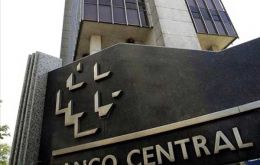
Brazil's twelve-month public sector primary budget surplus widened in June amid a robust surplus from state and local governments, helping bring the country's nominal deficit slightly narrower.
-
Tuesday, July 23rd 2013 - 07:54 UTC
Despite papal blessings, Brazil further cuts spending and growth forecast
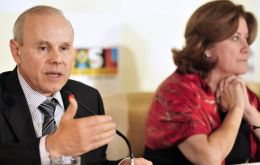
Brazil is cutting spending for the second time in two months to help meet its fiscal target as it forecasts slower growth this year which was also confirmed according to the latest Central Bank survey. The economic data was announced while Brazil had its eyes and ears in Rio do Janeiro to receive Pope Francis.
-
Friday, June 14th 2013 - 23:17 UTC
Brazil pumps more consumer credit lines trying to bolster the economy

The administration of President Dilma Rousseff will hand out 17 billion Reais (8 bn dollars) in cheap loans for home appliance purchases it was announced this week, a further attempt bolster Brazilians' buying power as an anemic economy and high inflation erode its approval rating.
-
Friday, May 3rd 2013 - 02:31 UTC
Brazil with trade deficit for third month running; government blames change in fuel tax accounting
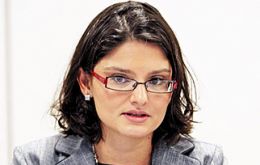
Brazil recorded in April its third trade deficit in four months, trade ministry data showed on Thursday, another weak result that reflects the deterioration of the country's trade balance due to a sluggish global economy and struggling local industry.
-
Thursday, May 2nd 2013 - 07:29 UTC
Brazil’s primary surplus well below target because of ‘government efforts to prop the economy’
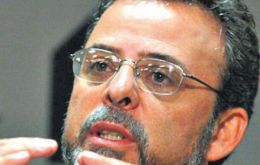
Brazil posted a budget primary surplus of 3.5 billion Reais (1.75bn dollars) in March, recovering after a deficit in February, but still the worst performance in the first quarter of the last four years, according to central bank data released this week.
-
Thursday, April 18th 2013 - 16:51 UTC
Brazil increases benchmark rate to fight inflation, but markets feel it’s not enough
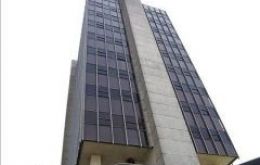
Brazil’s central bank on Wednesday raised its benchmark rate for the first time since July 2011 as policy makers seek to slow inflation levels. The bank’s board, led by President Alexandre Tombini, voted 6-to-2 to increase the Selic rate 25 basis points to 7.50% from a record low.
-
Tuesday, April 2nd 2013 - 05:42 UTC
Agriculture should help boost the Brazilian economy to 3.1% growth in 2013

The Brazilian economy is expected to grow 3.1% this year while inflation will reach 5.7% according to the latest estimates from the Central bank released in its “Quarterly inflation report”. In the previous report at the end of last year inflation was estimated at 4.8% but there was no figure for growth.
-
Tuesday, April 2nd 2013 - 02:37 UTC
Brazil postpones until next year increases in car sales taxes to help the economy
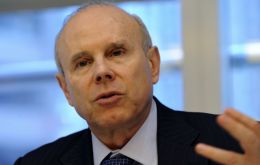
The Brazilian government postponed until next year increases in taxes on the sale of cars and trucks in a bid to stimulate demand for manufactured goods and spur economic growth, announced the Finance Ministry.
-
Wednesday, February 27th 2013 - 06:50 UTC
Brazil expects inflation to drop in second half of 2013 on a bumper crop of grains
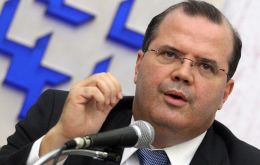
Brazil’s inflation will slow in the second half of the year as the country produces a bumper crop of grains and the Real doesn’t weaken as it did last year, central bank President Alexandre Tombini said.
